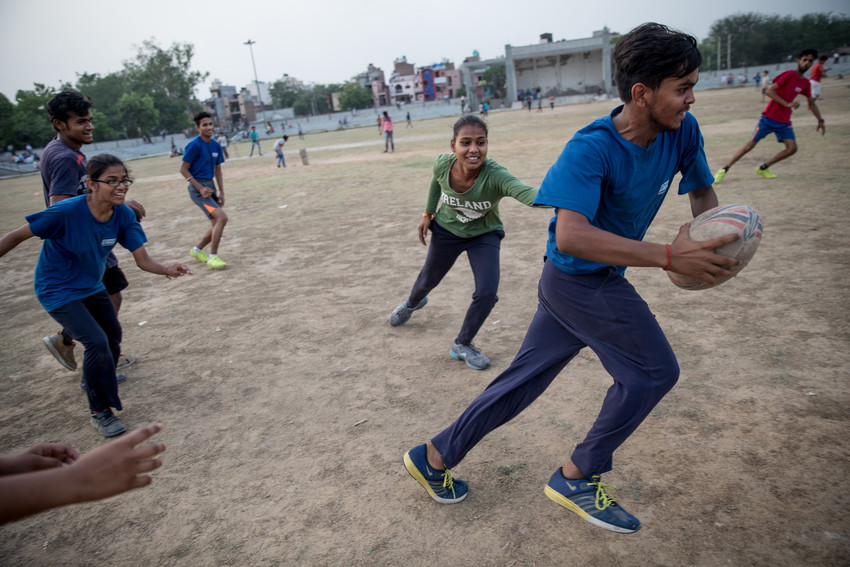In a New Delhi slum in New Delhi, a group of young women and men play together and, in the process, make their city safer.

A quiet revolution brews in a narrow lane in one of Delhi’s most unsafe localities. In Mangolpuri, a locality that registers the most number of police cases, a group of young men and women have taken charge of making their neighbourhood safer. Do streetlights work? Are there enough CCTVs? How do you rid the community park of drug addicts and gamblers who gather here after sundown?
Supported by a set of non-governmental organisations, over 500 young people who live here have conducted safety audits and taken up their concerns with the police, transport and public works department. Their goal? To build safe, accountable and inclusive cities for adolescent girls.
“In this locality, girls could not go out. On the streets, boys hung out in groups and would pass comments,” says Sonia, 14, a class 10 student. Adds Komal, 21, a graduate who is now learning stenography, “The only place I felt safe was within the four walls of my house.” In 2014, the Safer Cities Programme was launched in five cities around the world, including Cairo, Hanoi and Delhi. Two resettlement communities, Mangolpuri and Madanpur Khadar were selected, and by 2018, the programme had touched 80,000 homes in Delhi.